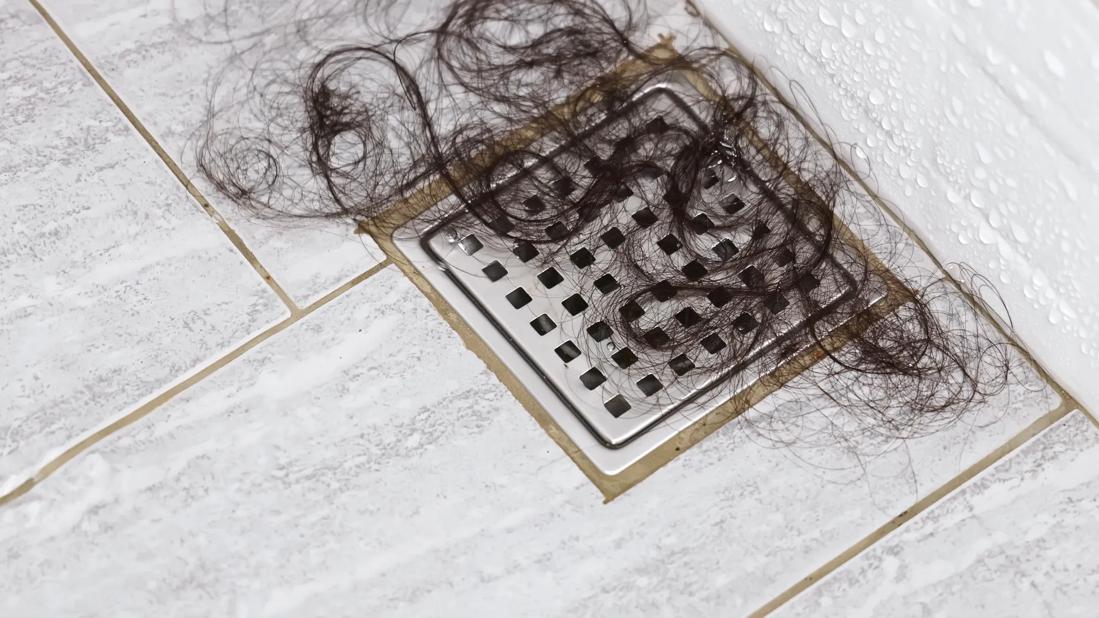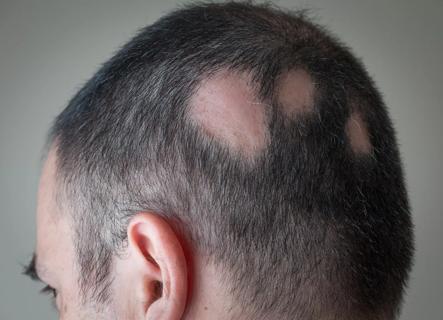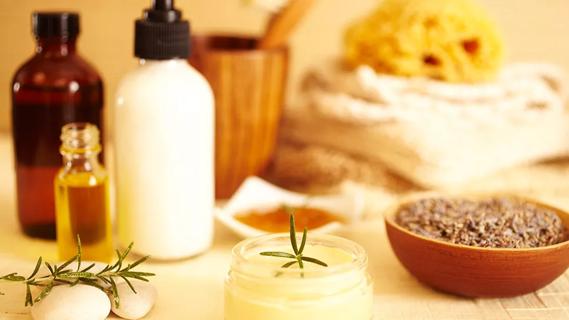It’s normal to lose around 50 to 150 strands per day to routine hair shedding

There are about 250,000 strands of hair on your head at any given time. So, how much hair is normal to lose in the shower?
Advertisement
Cleveland Clinic is a non-profit academic medical center. Advertising on our site helps support our mission. We do not endorse non-Cleveland Clinic products or services. Policy
On average, you lose about 50 to 150 strands each day, and it’s fairly common to see most of those hairs in your shower.
While it can be alarming to see your hair falling out in the shower, it’s actually normal to experience routine hair shedding as you bathe, says dermatologist Wilma Bergfeld, MD.
When you wash your hair, you’re massaging hair follicles that may already be in their resting or shedding phase (one of the last stages our hair goes through). The motion of shampooing and rinsing can dislodge those hairs.
“Most hair shedding is expected to happen in the shower, although it’s still common to lose some when combing through afterward,” Dr. Bergfeld notes.
The amount of hair you lose per day can also depend on the length and thickness of your hair. If you have thicker hair, you may shed slightly more — closer to 150 to 200 hairs a day — simply because you have more of it.
While hair shedding happens to everyone, you can minimize how much you shed by practicing these healthy hair habits when washing and styling.
Dr. Bergfeld recommends using a wide-tooth comb to help tame your locks. A bristle brush or small-toothed comb can cause breakage and pull out more hair.
And your daily brushing routine should be gentle and balanced — even when you’re trying to get out a tough hair knot. Pulling and yanking a brush or comb through can cause trauma to your hair and encourage more hair loss than usual.
Advertisement
Yes, we mean it quite literally. Constantly wearing a tight ponytail can also put stress on your hair follicles. Just like you, your hair needs some time to relax and unwind. If you can, try to leave your hair down as much as possible. It’s also best to avoid touching your hair too much or using rubber hair ties.
Instead, opt for putting your hair in looser ponytails or using scrunchies, which have a lighter hold on your strands.
You may love a good blowout, but too much heat can damage your hair. You should limit using hot tools like a blow dryer, curling iron and straightener.
If you can’t live without these styling tools, use a thermal spray to protect your strands. Also, too much sun exposure can damage your hair, so opt for a hat when you’re outdoors in sunny weather.
The number of times you wash your hair per week can also affect how much you shed. Dr. Bergfeld says that if you notice your hair shedding more often than usual, cut down on washing and conditioning if you’re doing it every single day.
On the other hand, if your routine is to wash your hair fewer than once or twice a week, you may see a normal increase in shedding on wash days because of all the buildup. A good balance is washing one to three days a week. You can experiment to find a schedule that works best for you.
Who doesn’t like a nice, hot shower? But moderation is key.
In the same way that constant blow drying can damage your hair, hot water can do the same. The cuticle layer of your hair can start to lift after too much exposure to heat and water. This is because your hair expands more under hot water, which makes it more prone to breakage and frizz.
Not only that, but overly hot showers can also dry out your scalp and make it more vulnerable. Opt for a warm shower instead.
Hair shedding isn’t the same as hair loss. Hair loss occurs when hair stops growing, while hair shedding is a normal phase of your hair’s life cycle.
“If you continue to shed long after you’ve shampooed or you suddenly find it all over your clothes, that could signal a problem,” cautions Dr. Bergfeld.
Chronic or excessive hair loss, referred to as telogen effluvium, can indicate that something isn’t quite right internally. According to the American Academy of Dermatology, signs of hair loss can look like:
Plus, hair loss can sometimes happen quickly and dramatically. So, if you notice giant clumps of your hair falling out or a bald patch appearing within one or two days, talk to a doctor or a dermatologist right away.
Advertisement
“When someone comes in talking about finding fistfuls of hair, we do an evaluation and go back four to six weeks to pinpoint any major life events or conditions that could be contributing to it,” explains Dr. Bergfeld. “If we can find the cause, we can usually treat it.”
Possible reasons for hair loss or thinning can include:
It’s normal to notice some strands of your hair circling the shower drain. But if you notice a dramatic change in how much hair you’re losing — even in the shower — it could point to a problem.
If you feel like you’re losing more hair than usual or are experiencing bald spots, talk to a healthcare provider or a dermatologist.
Advertisement

Sign up for our Health Essentials emails for expert guidance on nutrition, fitness, sleep, skin care and more.
Learn more about our editorial process.
Advertisement

Take steps to reduce stress by practicing meditation, finding time to relax and maintaining a healthy lifestyle

You may see pitting, brittleness or ridges in your fingernails and toenails

Your immune system may attack hair follicles anywhere on your body

Studies are mixed, but frequently wearing very tight, warm hats could stress your follicles and lead to hair loss

Things like stress, heated styling and other health conditions may cause you to lose more hair than normal

Creatine does cause some side effects, but hair loss probably isn’t one of them

A gentle hair care routine, stress reduction and sun protection can help reduce flares and maintain your locks

Home remedies may help your hair, but don’t expect them to cure the autoimmune disease

Even small moments of time outdoors can help reduce stress, boost mood and restore a sense of calm

A correct prescription helps your eyes see clearly — but as natural changes occur, you may need stronger or different eyeglasses

Both are medical emergencies, but they are very distinct events with different causes